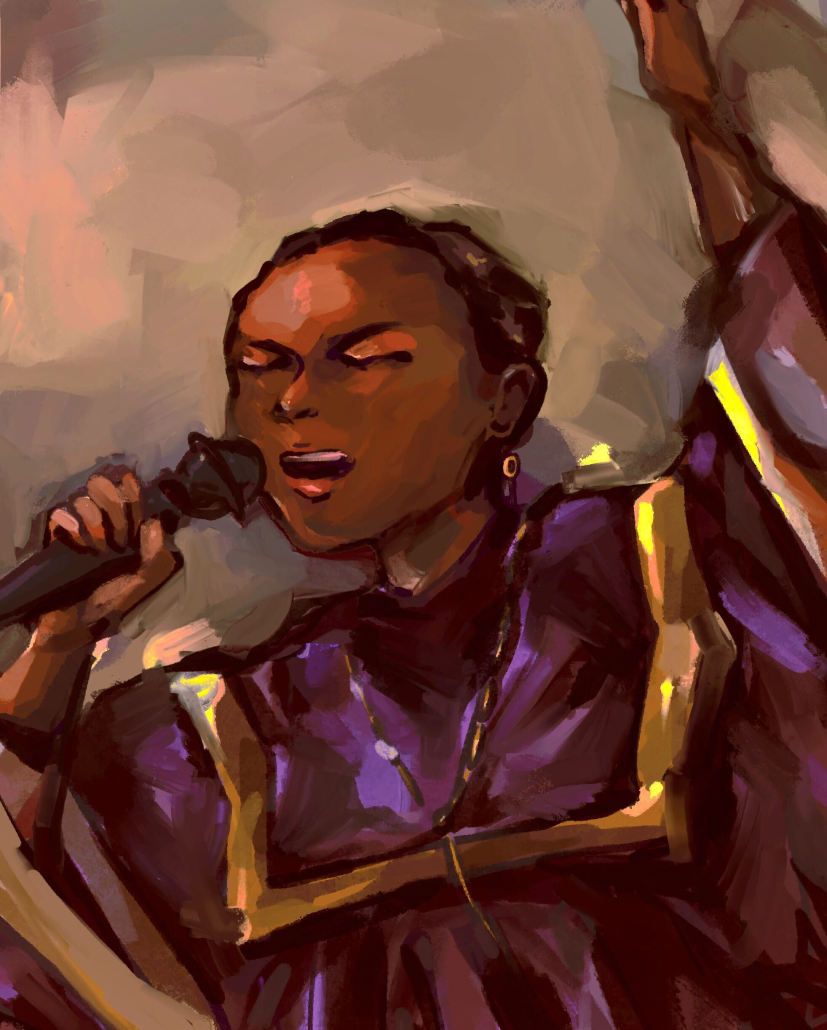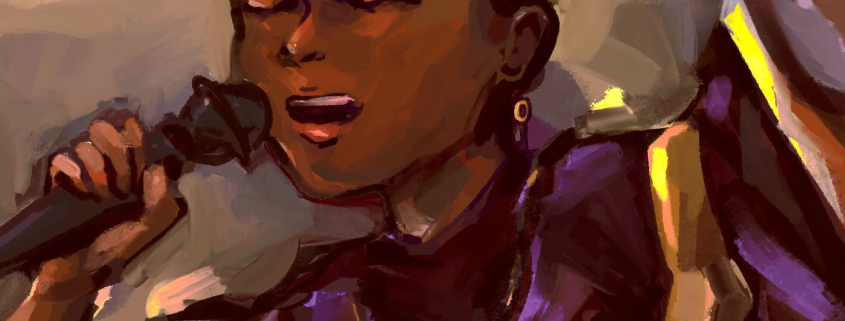Jam Journal: Starting the year right with Black gospel music

The New Year came and went with little fanfare. My mother and I watched a countdown on TV, we said ‘Happy New Year’ to each other — and I went back to my room, hoping to spend a quiet rest of my night.
God, apparently, had other plans; Barely a minute after I sat back down at my desk I got this tremendous, entirely unprompted urge to listen to Black gospel music. So I sat there until 4 a.m., fussing over a Spotify playlist while somehow managing the unparalleled euphoria of listening to a belting choir. By the time I settled down to sleep, I’d vowed to myself I would listen only to this one playlist for an entire week. Reader, I kept that vow — and I am dead certain my Spotify Wrapped is set for the rest of the year.
This is hardly my first foray into the genre. This most recent iteration was spurred by Ricky Dillard and New G’s “I’ve Got the Victory,” which resurfaced as a viral TikTok audio in the summer of 2021. Before that, it was Kirk Franklin’s NPR Tiny Desk Concert, which came out in 2021 in celebration of Black History Month. And before that, in the very beginning, it was Aretha Franklin.
There is no discussion of Black gospel music, or Black music, or American music, without Aretha Franklin. Most know her through her work in other genres — which won her 18 GRAMMYs and a long list of other awards and honors — but what really made her the Greatest Singer of All Time, as Rolling Stone named her, was gospel music.
In 1972, Aretha went up to the pulpit at the New Temple Missionary Baptist Church here in Los Angeles and poured her flesh and soul into a nine-minute rendition of “Amazing Grace.” At some points, the microphone threatened to buckle under the sheer force she emanated, note after note after note. Through tears, the choir goaded her on with a verse of their own. With every inflection, she toyed with the very energy of the room — making the audience cheer, making them cry, making them stand and holler, making them sit in awe of her power, of God’s power.
I myself don’t quite believe in a god; I don’t go to church, and I’ve stopped reading the Bible. But after that first week of listening, it wouldn’t take much for me to convert. It turns out all it takes is the music: the kind that uplifts me at my lowest and gets me on my feet, as Aretha did to those churchgoeers four decades ago. Her “Amazing Grace” changed my life from the moment I heard it, and since then, I have never stopped looking for more music like it.
Enter Ricky Dillard, the Chicagoan house-turned-gospel-musician and the man responsible for “I’ve Got the Victory.” It’s hardly his most well-known song: That prize goes to “You’re The Lifter,” the live rendition of which at the Haven Of Rest Missionary Baptist Church has over 10 million views at the time of publication.
It’s 14 minutes long, but it feels like less than three. Large as that auditorium may be, there is no space to breathe, no room to think. All of it is filled, if not by the choir, by the soloist April Hall; there is only pure bliss to be enjoyed as it envelops and overwhelms every corner their praise can reach. No sooner than you think Hall is finished, she keeps going, still belting, with the same energy she’s kept for the last four or five minutes: “Come on now, somebody lift your hands if He’s been your Lifter. Can you lift your hands and give Him praise?” The people gladly oblige. “He is the Lifter! He is the Lifter! … He restored me! He put me back together again!”
At the 10-minute mark, the music finally reaches a lull. But you must know the first rule of gospel music: there is no such thing as a lull. Dillard gives some cues to the choir, then immediately struts over to the audience, where the equally legendary Tamela Mann is sitting timidly. At first, not knowing who she was, I thought Dillard had just walked up to some random audience member and expected her to sing. She seems no different than the people around her in dress and demeanor, and Dillard doesn’t bother with an introduction. “You look good today,” he says. “You don’t look like what you been through. Would you sing to us? About how He brought you out of that place, for you to be lookin’ like that?”
And sing, she does. She gives the performance of a lifetime, still sitting, even as her voice soars to the heavens, even as everyone around her stands. Even I stood up in front of my computer. It was an involuntary movement. There was no other reaction I could possibly muster, besides a slew of expletives which I’d best not repeat here — I will say they all started with “holy,” so at least it was on brand.
Perhaps that’s the point of gospel music: to be so overwhelmed with joy, excitement and vigor by this smallest portion of the glory of God; to immerse oneself in it; to bask in it; to let go and entirely submit to it — to be free. Though I may not be Christian, that much I will gladly do. Because what better way to defeat darkness than with light, and what better way to conquer fear than with hope?
“Jam Journal” is a rotating column featuring a new Daily Trojan editor in each installment commenting on the music most important to them. “Jam Journal” runs every other Friday.

